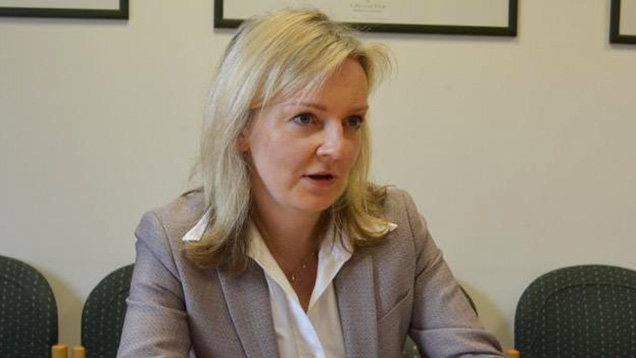Defra can deal with budget cuts, says Truss
 This has RBI copyright. Taken by Johann
This has RBI copyright. Taken by Johann Defra secretary Liz Truss has warned that her department faces major cuts when the government unveils its spending plans this autumn.
But she played down the prospect that Defra could be abolished altogether.
See also: Defra could be disbanded, says Lib Dem peer
Ms Truss was giving evidence to MPs on the Environment, Food and Rural Affairs Select Committee on Wednesday (21 October).
As an “unprotected” department, Defra faces a 25-40% budget cut when chancellor George Osborne unveils his spending review on 25 November.
Ms Truss said: “We are still in discussions with the Treasury about our budget and I can’t really reveal a great deal about the state of our negotiations.”
But she added: “There are ways that we can make savings as a department.”
These included better use of technology and Defra agencies working more closely together.
At the moment, for example, the Environment Agency and Natural England still have their own human resources, finance and IT systems.
“There is a big opportunity for us to put those back offices together and work more closely together so we are actually delivering things better on the ground.”
There was a lot of opportunity to reform Defra and deliver better services, said Ms Truss.
“I think there really has been too much debate about ‘do we close this organisation or department?’ Instead we should look at what we do and what is the best level to do it.”
Some decisions should be made more locally, Ms Truss suggested. Organisations such as internal drainage boards and river authorities should take on more responsibility, she added.
MPs are examining Defra’s priorities for this Parliament and its performance in 2014-15 – as well as scrutinising the department’s annual report and accounts.
Ms Truss said a majority Conservative government would be able to be more ambitious and had already laid out plans to create a long-term plan for food and farming.
The plan was likely to be launched early next year, she said.
MPs are assessing Defra’s success in delivering on its key priorities for the rural and farming economy and for the environment, as well as protection from natural hazards.
Responding to emergencies such as flooding and animal disease were among the biggest challenges for the department, said Ms Truss.
So too was implementing “the most complicated CAP ever,” she added.
The government was doing all it could to reduce red tape and bureaucracy, but some of the new CAP rules were very difficult for farmers to implement.
